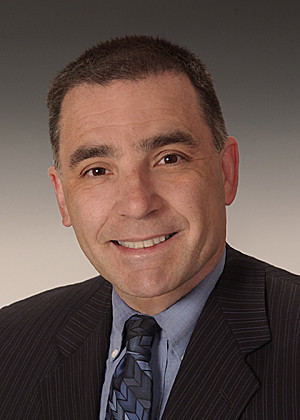
Anthony Botelho, president and CEO of Freedom National Bank, is also the president of the 100-year-old Rhode Island Bankers Association. He talks with Providence Business News about the current regulatory environment, the industry’s workforce and what’s changed since the global financial crisis of 2008.
PBN: What’s your take on Rhode Island’s current banking landscape?
BOTELHO: Since the financial crisis of ‘08, what’s happened from a macro prospective in the industry, is there’s been a lot of consolidation in the industry. Banks continue to be very active in mergers and acquisitions. That’s true of the nation and probably to a lesser extent true in New England, but to even a lesser extent in Rhode Island. I think Rhode Island and New England in general have weathered the storm OK because, from my prospective, banks in New England were relatively conservative in their underwriting and in their extension of credit. Whereas a lot of the banks that failed or were bought took a lot more speculative-lending risk throughout the country.
PBN: What else has changed since the recession?
BOTELHO: I think since the recession, and this is probably true for banks in general, there are a lot more regulations and more changes in technology. The well-documented rise of mobile and digital banking – there’s a lot more of that occurring here in Rhode Island. Beyond the regulatory pressures, you’re also seeing less branch expansion; less brick-and-mortar.
PBN: How’s technology changing the industry?
BOTELHO: With fintech (financial technology), there’s a new group of competition that we hadn’t seen prior to the recession. A lot of that is coming into the industry with less regulation and sometimes no regulation. But that being said, in Rhode Island and New England, there’s still a demand from customers to talk to real people and while the tech is nice and everything, customers still want to get in front of a decision-maker and talk to people in their local branch networks. I think there’s still a generational shift going on. As millennials come up it might be less of the case, as millennials do most of their banking online and come in only to open an account.
PBN: So how do banks grow from here?
BOTELHO: When you look at Rhode Island closely, you’re seeing banks not just growing in Rhode Island, but also taking their business models beyond the border. Examples would be banks going from Rhode Island to Connecticut, or commercial and mortgage lending going to Massachusetts. This may speak to the fact that we have a competitive banking market in Rhode Island, but it might also be that there hasn’t been that robust of a lending market, so in order to grow we’ve had to go beyond the borders. Conversely, we’re also seeing Massachusetts banks come into Rhode Island, so I think you’re seeing less of a border mentality than there was many years ago.
PBN: Are you having difficulty finding the next generation of bankers?
BOTELHO: There’s certainly still a generational gap in commercial banking that we’re trying to fill because there was a lost decade when there wasn’t a lot of training or job opportunities in commercial banking. There’s a recognition within the industry that we need to reinvest some time and resources into commercial bankers and develop that talent pool, which is ongoing.












